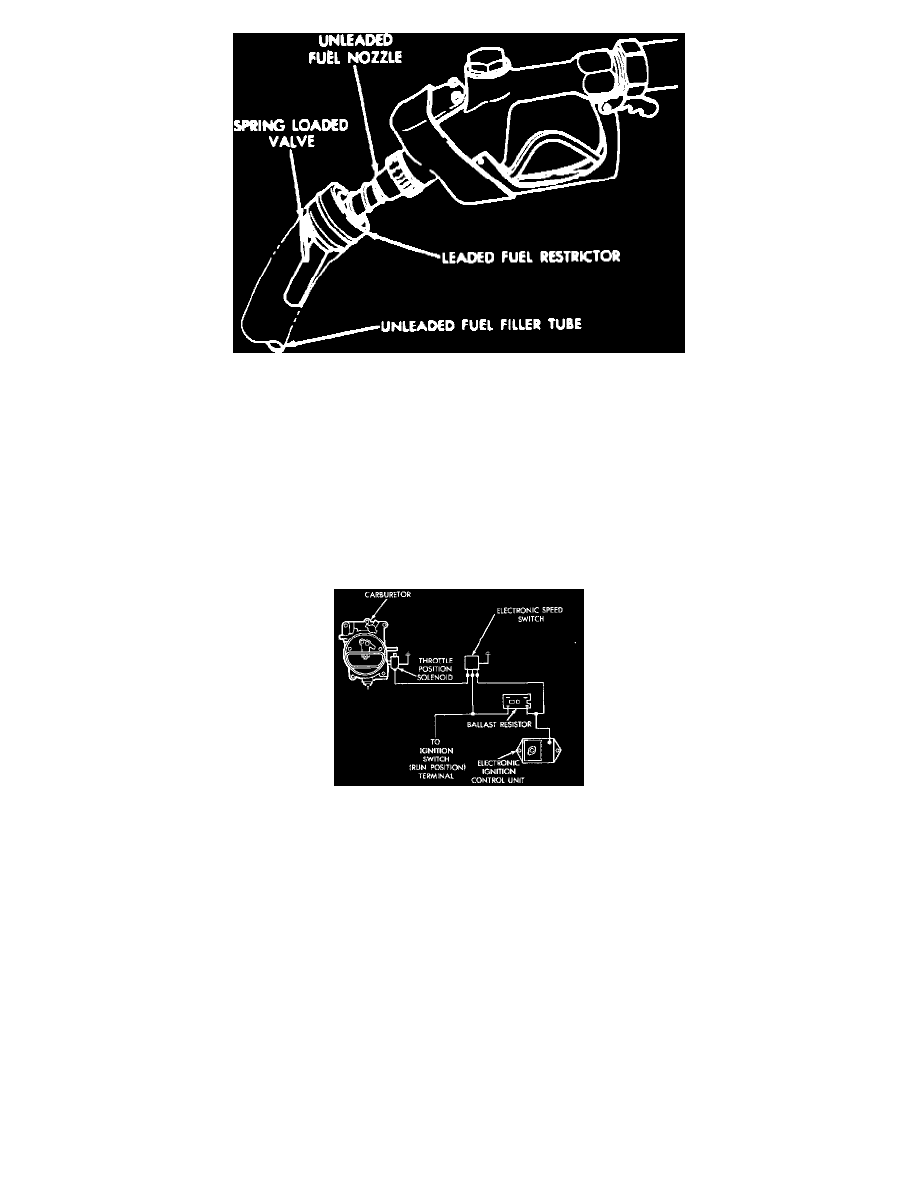PB 350 V8-360 5.9L VIN T 4-bbl (1982)

Fig. 13 Unleaded fuel tank filler tube
The catalytic converter is used to oxidize hydrocarbons (HC) and carbon monoxide (CO) in the exhaust system. The converter is constructed of a
stainless steel shell containing two ceramic monolithic elements which are coated with a catalytic agent, Fig. 12.
The combustion type reaction created by the catalyst releases additional heat in the exhaust system with temperatures up to 1600° F under normal
operating conditions. This additional heat is needed for the catalyst to function properly. Special heat shields are used to protect chassis
components and other areas from heat damage.
Since the use of leaded fuels contaminates the catalysts, the use of unleaded fuels is mandatory in vehicles equipped with catalytic converters. A
smaller diameter fuel tank filler tube is used to prevent the addition of leaded fuel into the fuel tank. In addition, a spring-loaded valve, Fig. 13,
which is opened by the unleaded fuel nozzle, prevents the addition of fuel by other than the proper nozzle.
Fig.10 Catalyst Protection System Wiring Diagram
Some 1975-76 vehicles with catalytic converters have a Catalyst Protection System, Fig. 10, which prevents overheating of the converter during
high speed deceleration.
